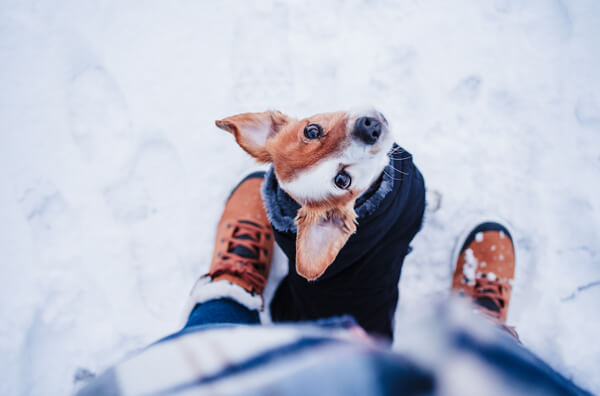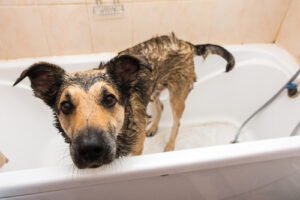As pet owners, we know our pets love to play and explore, no matter the season. However, winter brings unique challenges and hazards for our beloved pets. This blog post aims to guide you through various ways to keep your pets safe and comfortable during the cold months. We’ll discuss tips and precautions to protect them from the chilly weather’s potential risks. If you have any concerns or need personalized advice for your pet, feel free to reach out to Veazie Veterinary Clinic in Bangor, ME, at (207) 941-8840. Our friendly team is always here to help!
Understanding the Risks of Winter
Winter weather can be tough on pets, just like it is on us. Pets can suffer from cold-related issues such as frostbite and hypothermia, especially if they spend a lot of time outdoors. It’s crucial to understand how the cold affects different pets. Smaller breeds, senior pets, and those with medical conditions may need extra care during winter. If you notice any signs of discomfort or unusual behavior in your pet, it’s a good idea to consult with your veterinarian.
Protecting Paws and Coats
Your pet’s paws are vulnerable in winter. Snow, ice, and salt can cause dryness, cracking, or even burns on their paw pads. It’s important to check and clean their paws after outdoor activities. Consider using pet-safe ice melts at home and look into protective booties or paw balms for extra care.
Coat Care
While pets’ coats provide some insulation, not all pets have thick fur to protect them from extreme cold. Short-haired breeds might need a coat or sweater for extra warmth during walks. However, it’s also essential to ensure that these garments are dry and comfortable.
Safe Outdoor Activities
Even in winter, pets need exercise and stimulation. Shorter, more frequent walks can help minimize exposure to cold. Always be mindful of the temperature and wind chill, and avoid walking during extreme conditions. Indoor play is a great alternative to keep them active and engaged. When your pet is outside, keep a close eye on them. If it’s too cold for you, it’s probably too cold for your pet. Ensure they have access to a warm, sheltered area and fresh, unfrozen water if they spend time outdoors.
Indoor Safety Measures
Keeping your home warm and comfortable is key during winter. Ensure your pet has a cozy spot away from drafts. Be cautious with heaters and fireplaces, as they can pose risks for curious pets.
Winter Toxins
Be aware of indoor hazards such as antifreeze, which can be lethal if ingested. Store these substances out of reach and clean up any spills immediately.
Emergency Preparedness
Knowing the signs of frostbite and hypothermia can be lifesaving. Shivering, lethargy, and pale or blue skin are warning signs. If you suspect your pet is affected, wrap them in warm blankets and seek veterinary care immediately.
Preparing for Winter Emergencies
Have a plan in case of severe winter weather. This includes having an emergency kit with essential supplies for your pet. Also, ensure your pet’s microchip and ID tags are up-to-date in case they get lost.
Staying Informed and Seeking Help
Staying informed about winter pet care is important. Regular check-ups and discussions with your vet at Veazie Veterinary Clinic can provide you with personalized advice and help you spot potential issues early. If you have any questions or concerns about your pet this winter, don’t hesitate to call us at (207) 941-8840. Our team is here to support you and your pet through the chilly season.
Remember, winter can be a fun and enjoyable time for you and your pet with the right precautions. Keep them safe, warm, and active, and enjoy the season together!





